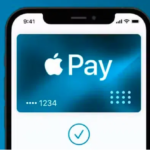Pi Network, a rapidly expanding cryptocurrency with a mission to create an accessible digital currency for all, has been gaining global attention. A critical step in the move toward the Open Mainnet is the KYC verification process, which is essential for all users, known as Pioneers.
However, the KYC process has posed several challenges, with many Pioneers encountering difficulties that have sparked questions within the community. To clarify these issues, a Pi Network moderator recently provided important insights to help Pioneers successfully complete their KYC and ensure that everyone can participate in the Pi ecosystem securely and legitimately.

Why KYC is Important for Pi Network
KYC is a crucial process for many financial platforms and cryptocurrencies, as it verifies the identities of users to prevent illegal activities like money laundering, terrorism financing, and unauthorized use. For Pi Network, KYC ensures that every user is a real person, not a bot or fake account. This verification is essential for maintaining a safe and trustworthy environment, as well as ensuring fair distribution of Pi Coins.
Challenges in the KYC Process
Despite the benefits, many Pioneers have faced issues with KYC. Common problems include difficulties uploading identification documents, technical errors with the Pi Browser, and concerns about the privacy of personal data.
- Uploading Identification Documents: Some Pioneers have struggled to upload their ID documents, often due to technical issues, incompatible formats, or unclear instructions. The moderator recommended using accepted formats (like PDF or JPEG) and ensuring the document is clear and fully completed before uploading.
- Technical Errors with Pi Browser: Technical issues like connectivity problems or app crashes have been reported by some Pioneers using Pi Browser for KYC. The moderator suggested ensuring the device has the latest Pi Browser version and a stable internet connection. If issues persist, trying a different device or contacting support is advised.
- Privacy Concerns: Privacy is a sensitive issue in the KYC process, especially in the cryptocurrency space. Some Pioneers are worried about how their personal data will be handled. The moderator reassured users that Pi Network prioritizes data privacy and security, using high-level encryption and complying with regulations like the GDPR.
Steps for Successful KYC Completion
The Pi Network moderator also provided key steps to help Pioneers avoid common mistakes and complete their KYC successfully.
- Complete 30 Mining Sessions: Pioneers must have completed at least 30 mining sessions to start KYC. This requirement ensures that only active and committed users participate, reducing the risk of fake accounts or bots.
- Adhere to Age Requirements: Pioneers must be at least 18 years old to pass KYC. This age limit ensures legal capacity for financial transactions and protects minors from potential risks.
- Follow Pi Network Policies: Errors in Pi Browser may occur if system policies, like avoiding fake accounts or automated scripts, are violated. The moderator stressed the importance of understanding and following all Pi Network policies to avoid being flagged or blocked from the KYC process.
The Future of KYC and Its Impact on the Open Mainnet
KYC is a key component in Pi Network’s preparation for the Open Mainnet launch. With the KYC process nearing completion for 15 million users, efforts are ongoing to accelerate KYC to meet the Open Mainnet launch target by the end of the year. In the cryptocurrency world, trust is paramount, and KYC plays a vital role in building and maintaining that trust within the Pi ecosystem.








